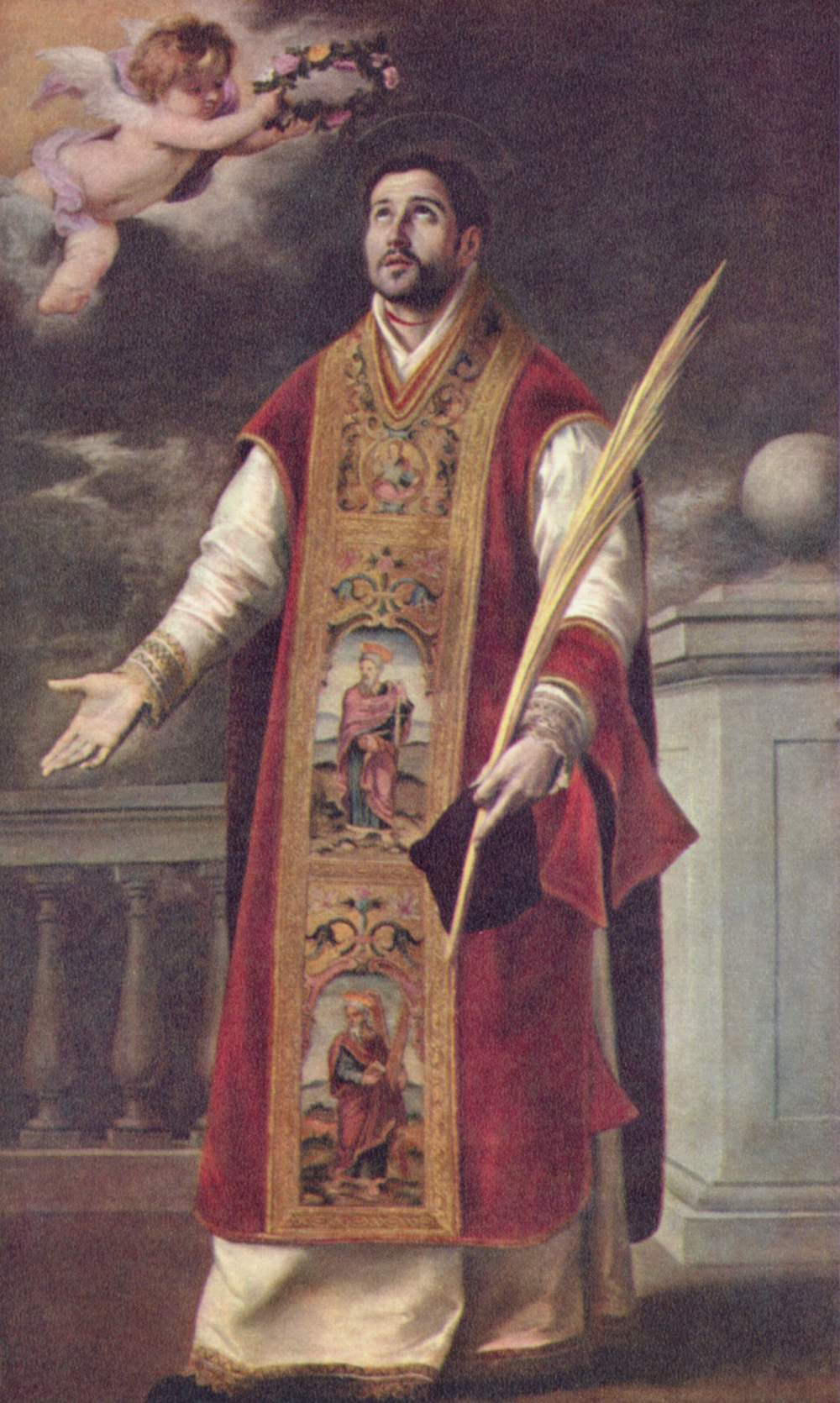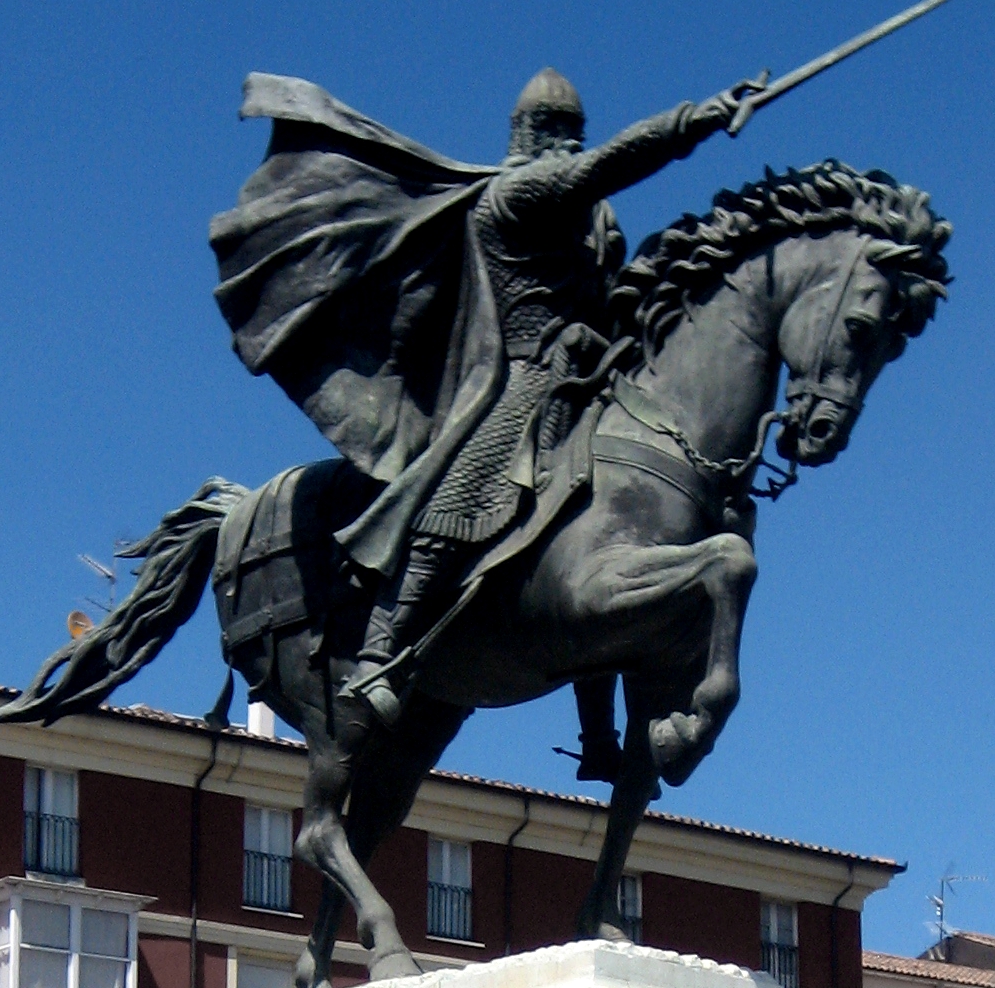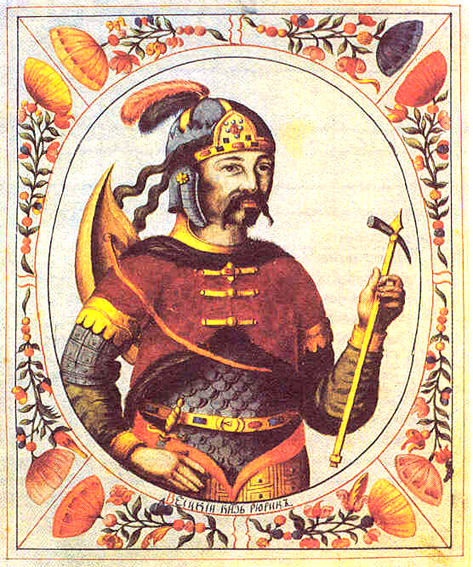|
Roderick
Roderick, Rodrick or Roderic (Proto-Germanic ''* Hrōþirīks'', from ''* hrōþiz'' "fame, glory" + ''* ríks'' "king, ruler") is a Germanic name, recorded from the 8th century onward.Förstemann, ''Altdeutsches Namenbuch'' (1856)740 Its Old High German forms are ''Hrodric, Chrodericus, Hroderich, Roderich, Ruodrich'' (etc.); in Gothic language ''Hrōþireiks''; in Old English language it appears as ''Hrēðrīc'' or ''Hroðrīc'', and in Old Norse as ''Hrǿríkʀ'' (Old East Norse ''Hrø̄rīkʀ'', ''Rø̄rīkʀ'', Old West Norse as ''Hrœrekr, Rœrekr''). In the 12th-century ''Primary chronicle'', the name is reflected as , i.e. ''Rurik''. In Spanish and Portuguese, it was rendered as ''Rodrigo'', or in its short form, ''Ruy, Rui, or Ruiz'', and in Galician, the name is ''Roi''. In Arabic, the form ''Ludhriq'' (لذريق), used to refer Roderic (Ulfilan Gothic ''*Hroþareiks''), the last king of the Visigoths. Saint Roderick (d. 857) is one of the Martyrs of Córdoba. T ... [...More Info...] [...Related Items...] OR: [Wikipedia] [Google] [Baidu] |
Saint Roderick
Saint Roderick ( la, Rodericus, Rudericus; es, San Rodrigo; died 13 March 857) was a Mozarab Catholic priest, venerated as one of the Martyrs of Córdoba The Martyrs of Córdoba were forty-eight Christian martyrs who were executed under the rule of Muslim administration in Al-Andalus (name of the Iberian Peninsula under the Islamic rule). The hagiographical treatise written by the Iberian Christ .... Tradition states that he was a Christian priest of Cabra, Spain, Cabra who had two brothers: one was a Muslim, the other Irreligion, irreligious. Once, after his brothers began to fight one another, Roderick attempted to break up the fight. However, they turned on him instead and beat him. When Roderick awoke, he found that his Muslim brother had reported to the authorities that Roderick had converted to Islam. When Roderick maintained his loyalty to the Catholic Church, Catholic religion, he was accused of Apostasy in Islam, apostasy from Islam under Sharia, ''Sharia'' law. He w ... [...More Info...] [...Related Items...] OR: [Wikipedia] [Google] [Baidu] |
The Vision Of Don Roderick
''The Vision of Don Roderick'' is a poem in Spenserian stanzas by Sir Walter Scott, published in 1811. It celebrated the recent victories of the Duke of Wellington during the Peninsular War, and proceeds of its sale were to raise funds for Portugal. Background ''The Vision of Don Roderick'' is based on an account given by Ginés Pérez de Hita of a legendary consultation of an oracle by the last Visigothic King of Spain, Roderic, around 711: this had been a favourite of Scott's since his boyhood when he had based a four-book poem ''The Conquest of Granada'' on it. On 30 April 1811 Scott wrote from Ashiestiel to Lady Abercorn that he had retired to the country to compose a poem in aid of 'the suffering Portuguese', and that James Ballantyne and his brother had generously promised him a hundred guineas (£105). A week later he was busy with the composition and planned on completion to send the manuscript to William Erskine for vetting before it was printed. On 12 May he was able t ... [...More Info...] [...Related Items...] OR: [Wikipedia] [Google] [Baidu] |
Roderic
Roderic (also spelled Ruderic, Roderik, Roderich, or Roderick; Spanish and pt, Rodrigo, ar, translit=Ludharīq, لذريق; died 711) was the Visigothic king in Hispania between 710 and 711. He is well-known as "the last king of the Goths". He is actually an extremely obscure figure about whom little can be said with certainty. He was the last Goth to rule from Toledo, but not the last Gothic king, a distinction which belongs to Ardo. Roderic's election as king was disputed and he ruled only a part of Hispania with an opponent, Achila, ruling the rest. He faced a rebellion of the Basques and the Umayyad invasion. He was defeated and killed at the Battle of Guadalete. His widow Egilona is believed to have married Abd al-Aziz ibn Musa, the first Muslim governor of Hispania. Early life According to the late '' Chronicle of Alfonso III'', Roderic was a son of Theodefred, himself a son of king Chindaswinth, and of a woman named Riccilo. Roderic's exact date of birth is unknow ... [...More Info...] [...Related Items...] OR: [Wikipedia] [Google] [Baidu] |
Martyrs Of Córdoba
The Martyrs of Córdoba were forty-eight Christian martyrs who were executed under the rule of Muslim administration in Al-Andalus (name of the Iberian Peninsula under the Islamic rule). The hagiographical treatise written by the Iberian Christian and Latinist scholar Eulogius of Córdoba describes in detail the executions of the martyrs for capital violations of Islamic law (''sharīʿa''), including apostasy and blasphemy. The martyrdoms recorded by Eulogius (the only contemporary source) took place between 850 and 859 AD, which according to the Mālikī judges of al-Andalus broke the treaty signed between Muslims and their Christian subjects. Some of the Christian martyrs were executed for apostasy and blasphemy after they appeared before the Muslim authorities and insulted the Islamic prophet Muhammad, although there was a minority case in which some of them were accused of such violations by witnesses. The witnesses at points have exaggerated the scale of the statements m ... [...More Info...] [...Related Items...] OR: [Wikipedia] [Google] [Baidu] |
March 13
Events Pre-1600 *624 – The Battle of Badr, the first major battle between the Muslims and Quraysh. *1567 – The Battle of Oosterweel, traditionally regarded as the start of the Eighty Years' War. *1591 – At the Battle of Tondibi in Mali, Moroccan forces of the Saadi dynasty, led by Judar Pasha, defeat the Songhai Empire, despite being outnumbered by at least five to one. 1601–1900 *1639 – Harvard College is named after clergyman John Harvard. *1697 – Nojpetén, capital of the last independent Maya kingdom, falls to Spanish conquistadors, the final step in the Spanish conquest of Guatemala. *1741 – The Battle of Cartagena de Indias (part of the War of Jenkins' Ear) begins. *1781 – William Herschel discovers Uranus. *1809 – Gustav IV Adolf of Sweden is deposed in the Coup of 1809. *1811 – A French and Italian fleet is defeated by a British squadron off the island of Vis in the Adriatic during the Napoleonic Wars. *1826 & ... [...More Info...] [...Related Items...] OR: [Wikipedia] [Google] [Baidu] |
Germanic Name
Germanic given names are traditionally dithematic; that is, they are formed from two elements, by joining a prefix and a suffix. For example, King Æþelred's name was derived from ', for "noble", and ', for "counsel". However, there are also names dating from an early time which seem to be monothematic, consisting only of a single element. These are sometimes explained as hypocorisms, short forms of originally dithematic names, but in many cases the etymology of the supposed original name cannot be recovered. The oldest known Germanic names date to the Roman Empire period, such as those of '' Arminius'' and his wife ''Thusnelda'' in the 1st century, and in greater frequency, especially Gothic names, in the late Roman Empire, in the 4th to 5th centuries (the Germanic Heroic Age). A great variety of names are attested from the medieval period, falling into the rough categories of Scandinavian (Old Norse), Anglo-Saxon (Old English), continental (Frankish, Old High German and ... [...More Info...] [...Related Items...] OR: [Wikipedia] [Google] [Baidu] |
Sir Walter Scott
Sir Walter Scott, 1st Baronet (15 August 1771 – 21 September 1832), was a Scottish novelist, poet, playwright and historian. Many of his works remain classics of European and Scottish literature, notably the novels '' Ivanhoe'', '' Rob Roy'', ''Waverley'', ''Old Mortality'', '' The Heart of Mid-Lothian'' and ''The Bride of Lammermoor'', and the narrative poems '' The Lady of the Lake'' and '' Marmion''. He had a major impact on European and American literature. As an advocate, judge and legal administrator by profession, he combined writing and editing with daily work as Clerk of Session and Sheriff-Depute of Selkirkshire. He was prominent in Edinburgh's Tory establishment, active in the Highland Society, long a president of the Royal Society of Edinburgh (1820–1832), and a vice president of the Society of Antiquaries of Scotland (1827–1829). His knowledge of history and literary facility equipped him to establish the historical novel genre as an exemplar of Europ ... [...More Info...] [...Related Items...] OR: [Wikipedia] [Google] [Baidu] |
Rodrigo
Rodrigo is a Spanish, Portuguese and Italian name derived from the Germanic name ''Roderick'' (Gothic ''*Hroþareiks'', via Latinized ''Rodericus'' or ''Rudericus''), given specifically in reference to either King Roderic (d. 712), the last Visigothic ruler or to Saint Roderick (d. 857), one of the Martyrs of Córdoba (feast day 13 March). The modern given name has the short forms ''Ruy, Rui'', and in Galician ''Roi''. The name is very frequently given in Portugal; it was the most popularly given masculine name in 2011–2012, and during 2013–2016 ranked between 4th and 2nd most popular. It is also moderately popular in Spain, ranking between 30th and 60th most popular during 2002–2015. History The form ''Rodrigo'' becomes current in the later medieval period. It is recorded in the '' Cantar de Mio Cid'', written c. 1200, as the name of Rodrigo Díaz de Vivar (c. 1043–1099, known as '' El Cid Campeador'').v. 467 ('' Destierro del Cid''): ''Mio Çid don Ro ... [...More Info...] [...Related Items...] OR: [Wikipedia] [Google] [Baidu] |
Roddy
Roddy is a surname and a masculine given name, often a short form of Roderick. People Given name * Roddy Beaubois (born 1988), French basketball player * Roddy Blackjack (c. 1927-2013), Canadian Chief of the Little Salmon/Carmacks First Nation of the Yukon * Roddy Bottum (born 1960), American musician * Roddy Burdine (1886-1936), American businessman * Roddy Collins (born 1961), Irish football (soccer) player and manager * Roddy Connolly (1901–1980), Irish politician * Roddy Cordy-Simpson (born 1944), British general * Roddy Darragon (born 1983), French cross-country skier * Roddy Doyle (born 1958), Irish novelist * Roddy Ellias (born 1949), Canadian musician * Roddy Estwick (born 1961), Barbadian cricketer * Roddy Evans (born 1934), Welsh rugby player * Roddy Frame (born 1964), Scottish singer-songwriter and musician * Roddy Frame (swimmer) (born 1941) English swimmer * Roddy Georgeson (born 1948), Egyptian footballer * Roddy Grant (footballer) (born 1966), British foo ... [...More Info...] [...Related Items...] OR: [Wikipedia] [Google] [Baidu] |
Rodrick (other)
Rodrick or Rodricks may refer to: People by given name * Rod Rutledge (born 1975), American NFL football player * Rodrick Del Rodgers (born 1960), American NFL football player * Rod Hill (born 1959), American NFL football player * Rod Monroe (American football) (born 1976), American football player * Rodrick Rhodes (born 1973), American professional basketball player People by surname * Michael Rodrick (born 1970), American actor * Stephen Rodrick, American journalist * Dan Rodricks, American columnist and radio talk-show host * Wendell Rodricks (1960–2020), Indian fashion designer Other uses * 18689 Rodrick, an asteroid * Rodrick Bridge, a historical bridge in Licking, Ohio; see List of bridges on the National Register of Historic Places in Ohio * Rodrick Heffley, a ''Diary of a Wimpy Kid'' character See also * Roderick Roderick, Rodrick or Roderic (Proto-Germanic ''* Hrōþirīks'', from ''* hrōþiz'' "fame, glory" + ''* ríks'' "king, ruler") is a Germanic name, recor ... [...More Info...] [...Related Items...] OR: [Wikipedia] [Google] [Baidu] |
Visigothic Kingdom
The Visigothic Kingdom, officially the Kingdom of the Goths ( la, Regnum Gothorum), was a kingdom that occupied what is now southwestern France and the Iberian Peninsula from the 5th to the 8th centuries. One of the Germanic peoples, Germanic successor states to the Western Roman Empire, it was originally created by the settlement of the Visigoths under King Wallia in the province of Gallia Aquitania in southwest Gaul by the Roman government and then extended by conquest over all of Hispania. The Kingdom maintained independence from the Eastern Roman or Byzantine Empire, whose attempts to re-establish Roman authority in Hispania were only partially successful and short-lived. The Visigoths were Romanization (cultural), romanized central Europeans who had moved west from the Danube, Danube Valley. They became foederati of Rome, and wanted to restore the Roman order against the hordes of Vandals, Alans and Suebi. The Fall of the Western Roman Empire, Western Roman Empire fell in 47 ... [...More Info...] [...Related Items...] OR: [Wikipedia] [Google] [Baidu] |
Rurik
Rurik (also Ryurik; orv, Рюрикъ, Rjurikŭ, from Old Norse '' Hrøríkʀ''; russian: Рюрик; died 879); be, Рурык, Ruryk was a semi-legendary Varangian chieftain of the Rus' who in the year 862 was invited to reign in Novgorod. According to the '' Primary Chronicle'', Rurik was succeeded by his kinsman Oleg who was regent for his infant son Igor. He is considered to be the founder of the Rurik dynasty, which went on to rule Kievan Rus' and its principalities, and then the Tsardom of Russia, until the death of Feodor I in 1598. Vasili IV, who reigned until 1610, was the last Rurikid monarch of Russia. Life The only surviving information about Rurik is contained in the 12th-century '' Primary Chronicle'' written by one Nestor, which states that Chuds, Eastern Slavs, Merias, Veses, and Krivichs "drove the Varangians back beyond the sea, refused to pay them tribute, and set out to govern themselves". Afterwards the tribes started fighting each other and d ... [...More Info...] [...Related Items...] OR: [Wikipedia] [Google] [Baidu] |




